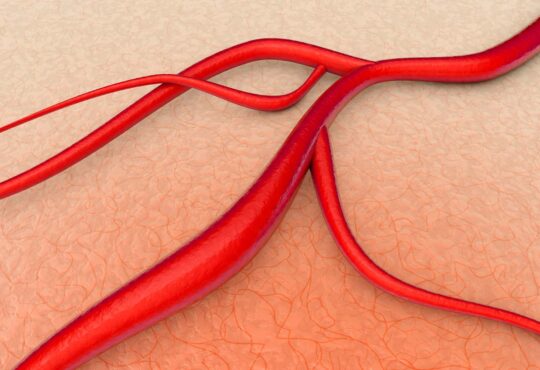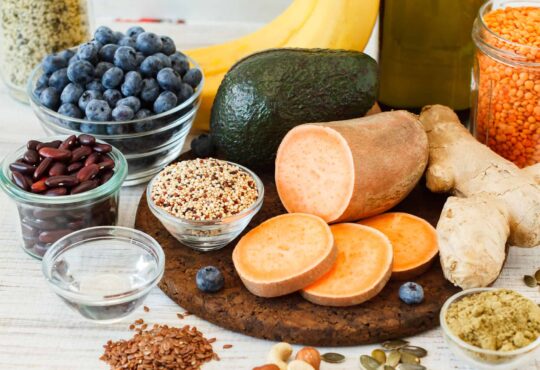
In the anti-aging world, diabetes drug metformin has become widely popular for its health benefits.
In his recent book, Lifespan: Why We Age – and Why We Don’t Have To, Harvard researcher Dr. David Sinclair revealed he took metformin as part of his daily regimen.
However, the trend began years before. Doctors noticed patients taking metformin for diabetes were actually experiencing fewer heart attacks and fewer cases of cancer than other people.
That’s not supposed to happen. Diabetes is a disease that normally leads to an increased risk of heart problems and cancer.
Not less.
Even better, metformin is quite cheap – less expensive than many supplements.
But it is still a pharmacological drug. In most of the world, including the United States, you need a prescription to buy it.
That’s not so easy for those of us not employed by the Harvard School of Medicine and who don’t have diabetes.
And many of us are nervous about taking “non-natural” drugs without a good reason.
Wouldn’t it be great if we could find a “natural” substance that did the same thing for us as metformin?
So it could be bought over the counter?
Enter Berberine
Berberine is an alkaloid compound found in many plants, including goldenseal, Oregon grape, Chinese goldthread and others.
It’s used in Traditional Chinese Medicine as well as in the ancient medical systems of India and Persia.
So far, the research results show great promise. Unfortunately, the studies have mostly been done on animals.
Berberine’s Suspected Benefits
As with metformin, one of the most impressive ways berberine improves human health is by decreasing insulin resistance.
And it increases the function of the islet cells in the pancreas that create insulin.
However, it also lowers fat in the blood. This reduces your LDL (bad) cholesterol and triglycerides, while also raising your HDL (good) cholesterol.
It appears to lower the risk of atherosclerosis, lowering the odds of heart disease.
In rats, berberine reduced high blood pressure.
And it lowered inflammation caused by cytokine activity – reducing damage to kidneys and blood vessels.
There are indications it will help with lowering the risk of congestive heart disease.
Berberine also appears to demonstrate beneficial effects on people suffering from gastrointestinal disorders, depression, multiple sclerosis, and neurodegenerative disorders.
Berberine in Diabetics
When you eat and digest food, the proteins and carbohydrates are transformed into the glucose – simple sugars – your body needs to burn for energy.
All your cells need energy, so they take in glucose from your blood.
And your cells require insulin to take in that glucose. It’s often described as the “key” to unlocking the cells to allow glucose to enter.
Over time, the body’s cells become resistant to this process, however.
They require more and more insulin to “convince” them to take in more glucose – so your levels of insulin become chronically high.
As the process gets more difficult and insulin rises, so does the “unwanted” glucose remaining in your blood.
At high levels, sugar in your blood is destructive. It damages those blood vessels. That leads to the poor circulation suffered by diabetics. That’s why they can go blind and need a foot amputated.
Both metformin and berberine support your body in safely managing high levels of blood sugar.
Anti-Aging
Berberine has increased the lifespan of flies, worms, and test mice. Of course, that’s no proof it will increase lifespan in people.
It does appear to have important, beneficial health effects, but lots more research needs to be done.
Important Mechanism of Action
Berberine activates AMPk. AMPk works to control cellular levels by sensing when cells are low in energy. That helps to explain why berberine is so beneficial for diabetics.
When your AMPk is activated, it influences the expression of your genes. It drives down cell activity that creates damage by free radicals.
Berberine also up-regulates p38, an enzyme.
By activating both AMPk and p38, berberine activates the Nrf2 pathway.
That’s a chain of highly important cell processes that protect you from the stress of injury and inflammation.
It also down-regulates a number of pro-inflammatory enzymes.
The conclusion: berberine activates a large number of biological processes that protect you from stress and inflammation.
It makes you more efficient at using and burning energy.
It makes your blood healthier by lowering fat, including bad cholesterol.
It protects you from damage caused by oxidative stress – free radicals.
Cautions:
Metformin, like antioxidants, actually lowers the effectiveness of the exercise. In one study, berberine also had participants working hard for little to no health benefit. However, other studies show it increases the effectiveness of the exercise.
If you’re an athlete, you could take berberine only at night, hours after you’ve finished exercising – until more research has been completed.
If you’re on any prescription drugs, consult with your doctor.
When used with some prescription drugs, berberine increases their bioavailability, which may affect how much of the drug you need to take.
But it seems to help reduce the harmful side effects of other prescription drugs.
There is no agreed-upon dosage of berberine.
Different studies have given widely different amounts to participants. Proceed with caution.
The most common side effects of berberine are diarrhea and constipation.
If you experience one of those, you’re taking too much.
Always consult your doctor before changing your diet or supplements.
https://www.youtube.com/watch?v=uZKQDaK4ip4
https://www.foundmyfitness.com/topics/berberine
https://www.youtube.com/watch?v=ez3B4tVudhU







